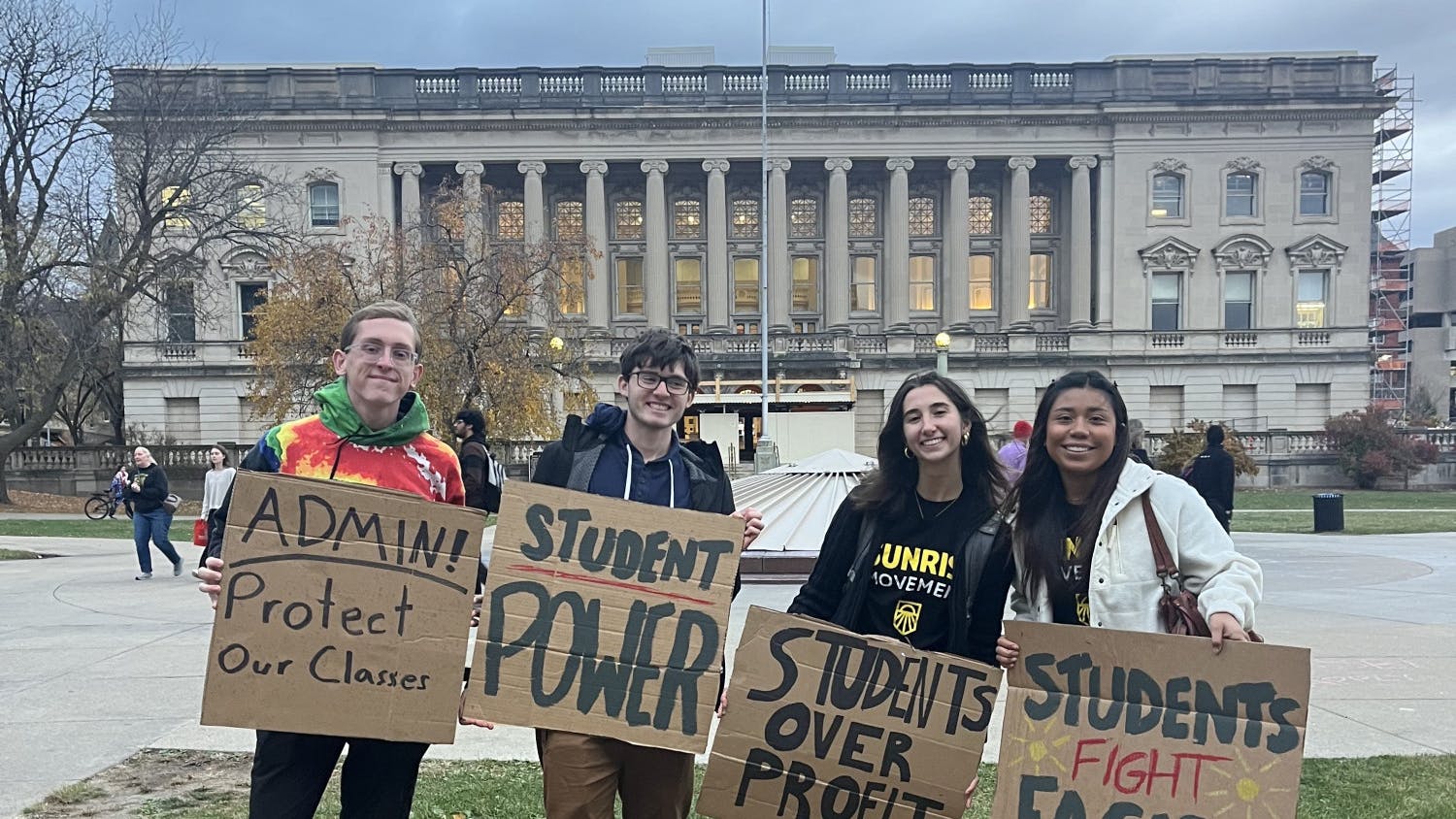The Trump administration instructed Wisconsin officials to reverse the state’s distribution of FoodShare benefits on Nov. 9 after Gov. Tony Evers released benefits for nearly 700,000 Wisconsinites who did not receive them at the beginning of the month because of the government shutdown.
Evers responded to the Trump administration with a simple “no.”
The Trump administration argued Evers violated federal authority in issuing full payments early, Evers disputed the claim, saying the payments were legally issued under a court order. Wisconsinites received their benefits only after a federal judge ordered the Trump administration to resume payments and the Supreme court issued a temporary stay order.
The ruling follows weeks of legal and political tension as Evers and Attorney General Josh Kaul joined a multistate lawsuit accusing the administration of unlawfully withholding food assistance. The lawsuit, filed alongside 22 attorneys general and three governors, argued the U.S Department of Agriculture (USDA) had sufficient emergency funds to continue payments during the government shutdown but refused to use them, in violation of federal law.
Evers announced late Nov. 6 that his administration had “moved immediately” to restore benefits after the ruling to ensure families will not have to continue worrying about where they will get their next meal.
“There’s federal funding the Trump Administration has available to help ensure millions of Americans, including nearly 700,000 Wisconsinites, continue to have access to basic foods and groceries, but they’re refusing to use it—we cannot accept that.” Evers said in a press release.
State Department of Health Services officials said they worked overnight to implement the court's order, with benefits expected to begin appearing in recipients’ FoodShare accounts as early as Nov. 7.
The ruling marks a major development in a growing standoff between state leaders and the Trump administration over the distribution of Supplemental Nutrition Assistance Program (SNAP) funds during the 43 day shutdown — the longest in U.S. history.
In Wisconsin, Foodshare’s reach is extensive. The program supports roughly 689,000 residents each month, including more than 170,000 children and 110,000 seniors over age 60. Nearly 4,500 retailers statewide accept SNAP payments making the program a crucial part of the state’s food economy.
State officials said SNAP is the backbone of food security programs, with local pantries and food banks providing essential supplemental support. Without SNAP access, they warned pantries risk being overrun with families waiting in long lines.
“[This is] not because we are in the middle of an economic catastrophe,” Kaul said. “But because we’re in the midst of a failure of leadership from D.C.”
According to USDA data, every $1 in SNAP benefits generates about $1.54 in economic activity, circulating money through grocery stores, farms and local markets. A prolonged suspension of benefits could have cost Wisconsin millions of dollars in lost spending, particularly in rural areas where FoodShare supports both families and small retailers.
Local food pantries already felt the strain. In Manitowoc County, several food drives reported donation drops of around 30% compared to last year. Rising grocery costs and uncertainty over SNAP benefits reduced the capacity for donations, and pantries began seeing new families stockpiling due to fear of losing FoodShare benefits.
Kaul warned the effects of delayed SNAP funding would ripple through communities and local economies.
“This is a humanitarian issue, of course, because we have people who may not know where their next meal is going to be,” Kaul told The Daily Cardinal. “This is going to impact people’s productivity, it’s going to impact the ability of kids to learn, and it’s going to impact our economy as well.”






